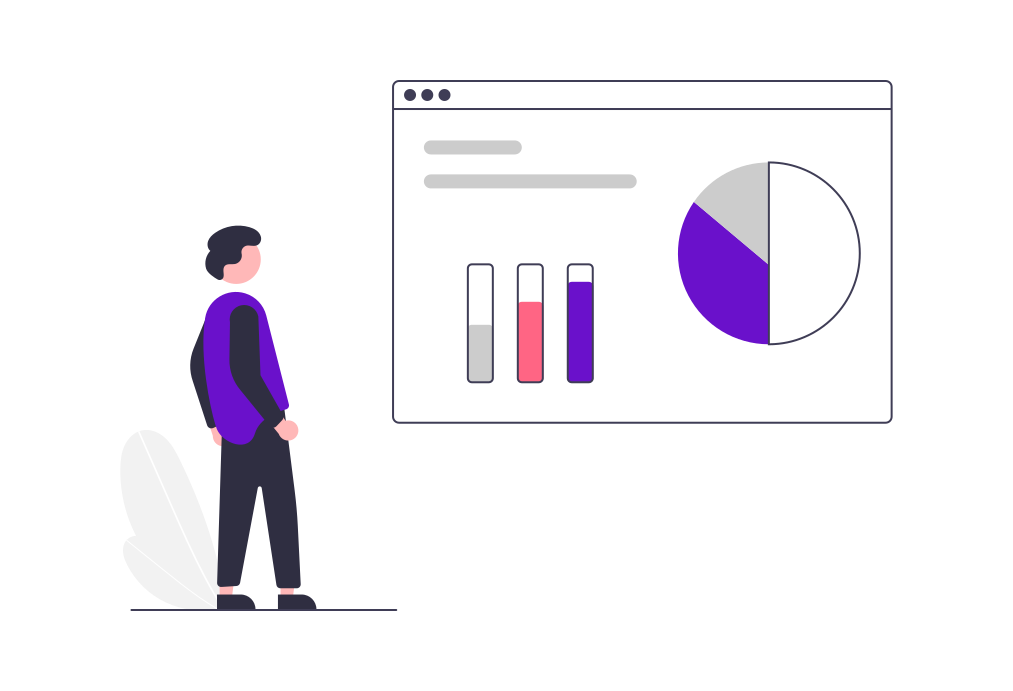Lead scoring has always been a cornerstone of successful Account-Based Marketing (ABM). However, traditional methods often fall short in accurately prioritizing leads. Enter machine learning—a game-changer that enhances lead scoring by analyzing vast datasets and identifying patterns beyond human capability. This blog explores how machine learning can revolutionize your lead scoring process, helping you identify and prioritize high-value prospects with unparalleled accuracy.
The Basics of Lead Scoring in ABM
Lead scoring assigns a numerical value to potential leads based on their likelihood to convert. Traditional scoring models typically use criteria such as demographic information, firmographics, and engagement metrics. While useful, these models often rely on static rules and limited data, making them less effective in complex and dynamic environments.
The Machine Learning Advantage
Machine learning algorithms excel at processing large volumes of data and identifying intricate patterns. By applying machine learning to lead scoring, you can analyze a wider array of factors, continuously refine scoring models, and gain predictive insights that traditional methods can't offer.
Key Components of Machine Learning-Enhanced Lead Scoring
Data Collection
The foundation of effective machine learning models is high-quality data. This includes both internal data from your CRM, email marketing, and web analytics, as well as external data such as social media activity and third-party intent data.
- Best Practice: Ensure comprehensive data collection by integrating multiple data sources into a centralized platform. Tools like Abmatic AI can help streamline this process.
Feature Selection
Feature selection involves identifying the most relevant variables that influence lead conversion. Machine learning algorithms can automatically select and weight these features based on their predictive power.
- Best Practice: Use machine learning tools to automate feature selection, ensuring that your models consider the most impactful variables.
Model Training
Machine learning models are trained using historical data to identify patterns and predict future outcomes. This involves feeding the algorithm large datasets and allowing it to learn which features are most indicative of a lead's likelihood to convert.
- Best Practice: Regularly update and retrain your models with new data to maintain accuracy and relevance.
Continuous Learning
Unlike static scoring models, machine learning algorithms continuously learn and improve over time. They adapt to new data, refining their predictions and becoming more accurate as they process more information.
- Best Practice: Implement a feedback loop where your models receive regular updates and retrainings based on the latest data.
Implementing Machine Learning for Lead Scoring
Step-by-Step Guide
- Data Integration: Consolidate your data from various sources into a unified platform.
- Feature Engineering: Identify and preprocess the key features that influence lead conversion.
- Model Selection: Choose the appropriate machine learning model (e.g., logistic regression, decision trees, neural networks) based on your data and goals.
- Training and Validation: Train your model using historical data and validate its accuracy using a subset of the data.
- Deployment: Integrate the trained model into your lead scoring system, allowing it to score incoming leads in real time.
- Monitoring and Optimization: Continuously monitor model performance and make adjustments as needed to improve accuracy.
Benefits of Machine Learning-Enhanced Lead Scoring
- Improved Accuracy: Machine learning algorithms analyze more data points and complex patterns, resulting in more accurate lead scores.
- Real-Time Scoring: Automated scoring in real-time ensures that your sales team can act on the most promising leads immediately.
- Dynamic Adjustments: Continuous learning and model updates allow your lead scoring system to adapt to changing market conditions and lead behaviors.
- Scalability: Machine learning models can handle large volumes of data, making them suitable for organizations of all sizes.
Common Challenges and Solutions
Data Quality Issues
Poor data quality can significantly impact the accuracy of your machine learning models. Ensure your data is clean, complete, and up-to-date.
- Solution: Implement data governance policies and use automated tools to regularly clean and update your data.
Integration Complexity
Integrating machine learning models into your existing systems can be complex and resource-intensive.
- Solution: Choose machine learning platforms that offer seamless integration with your existing CRM, marketing automation, and analytics tools.
Lack of Expertise
Machine learning requires specialized knowledge and skills that may be lacking in your organization.
- Solution: Invest in training for your team or partner with vendors that offer machine learning expertise and support.
Future Trends in Machine Learning for ABM
Predictive Insights
Machine learning will continue to evolve, providing deeper predictive insights and enabling more proactive marketing strategies.
- Trend Watch: Stay informed about advancements in machine learning algorithms and predictive analytics to leverage the latest innovations.
Personalization at Scale
Machine learning will enable even more personalized marketing efforts, tailoring content and messaging to individual leads at scale.
- Trend Watch: Explore new tools and platforms that use machine learning to deliver hyper-personalized marketing experiences.
Integration with AI-Powered Tools
The integration of machine learning with other AI-powered tools, such as chatbots and recommendation engines, will further enhance lead scoring and engagement.
- Trend Watch: Look for opportunities to integrate machine learning with AI-driven tools to create a cohesive and powerful marketing tech stack.
Conclusion: Transforming ABM with Machine Learning
Machine learning offers a transformative approach to lead scoring in ABM, providing unparalleled accuracy, adaptability, and scalability. By harnessing the power of machine learning, you can optimize your lead prioritization process, enhance your marketing efficiency, and ultimately drive better business results. Embrace this technology to stay ahead of the curve and ensure your ABM efforts are always on target.


